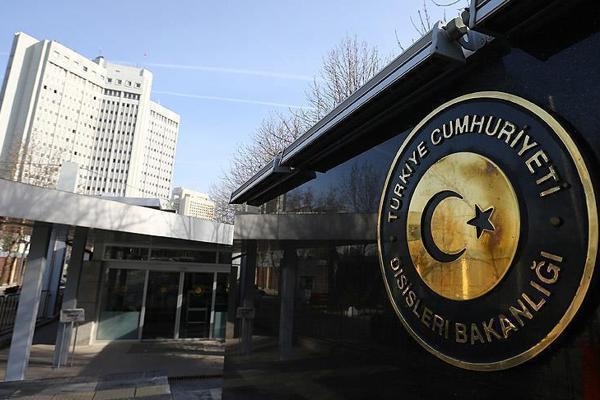Germany 'two-faced' for allowing HDP rally in Cologne: Turkish Foreign Ministry
ANKARA


The Turkish Foreign Ministry said on May 26 it condemned as a "double standard" a decision by Germany to allow a rally by the Kurdish issue-focused Peoples' Democratic Party (HDP) in Cologne, having previously prevented ruling party politicians from campaigning there.
"This two-faced approach, which we condemn strongly, cannot be reconciled with democracy, the fight against terrorism and expectations of a normalisation in Turkish-Germany relations," the ministry statement said.
Turkey's EU minister also took on German officials, although Doğan News Agency later in the day reported that HDP lawmakers were not allowed to take stage in the gathering.
In a message posted on Twitter, Ömer Çelik said Germany’s permission "is not compatible with a genuine notion of democracy and law. A terrorist show has been staged on the permission of German authorities."
“Permission granted by official authorities to such terrorist activities which in fact should be fought against in the name of democracy and law only means that terror is patronised. This cannot be explained away with any justification whatsoever," Çelik said.
Çelik said the German authorities' "patronizing terrorism" was an attack on their own democracy.
"Democracies which discriminate between terrorist organizations as good or bad ones only weaken their own legitimacy," he said.
Ankara accuses leading HDP figures such as co-founder and presidential nominee Selahattin Demirtaş of terror charges.
Leading government figures have many times said HDP is a political wing of the outlawed Kurdistan Workers' Party (PKK).
Europe not allowing Turkish politicians to rally
Turkey is scheduled to hold snap presidential and parliamentary elections on June 24, with three million expatriate Turks allowed to vote, including 1.4 million in Germany.
Turkey will go to early parliamentary and presidential elections a year-and-a-half ahead of schedule.
Germany, Austria and the Netherlands have all announced that they will not allow Turkish politicians to conduct pre-election campaigning in their territories, citing public order concerns.
Ties between Ankara and a number of European countries were hit in 2017 ahead of the controversial April 2017 referendum on shifting to an executive presidential system, with many Turkish politicians not permitted to hold pre-scheduled meetings.
The Netherlands deported one Turkish minister on the grounds that she had not sought permission from the authorities, prompting Erdoğan to denounce “Nazi-like” tactics.
Erdoğan told reporters on his return flight from South Korea on May 3 that bans on Turkish politicians from campaigning abroad are “undemocratic.”
